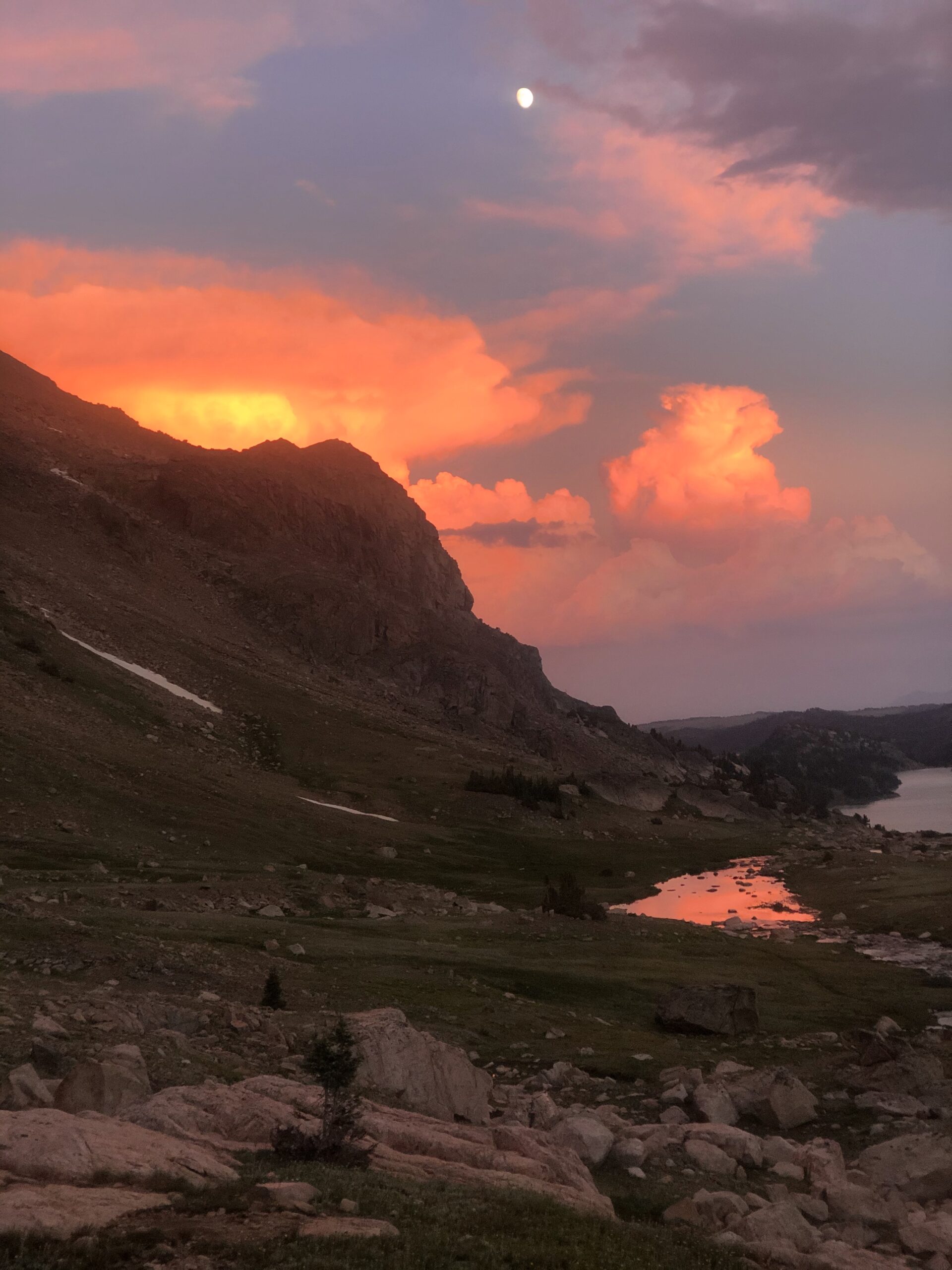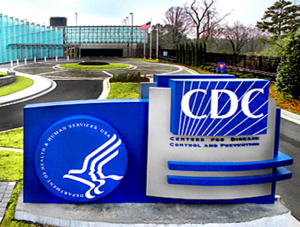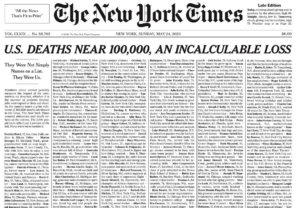In wildness is the preservation of the world.
– Henry David Thoreau
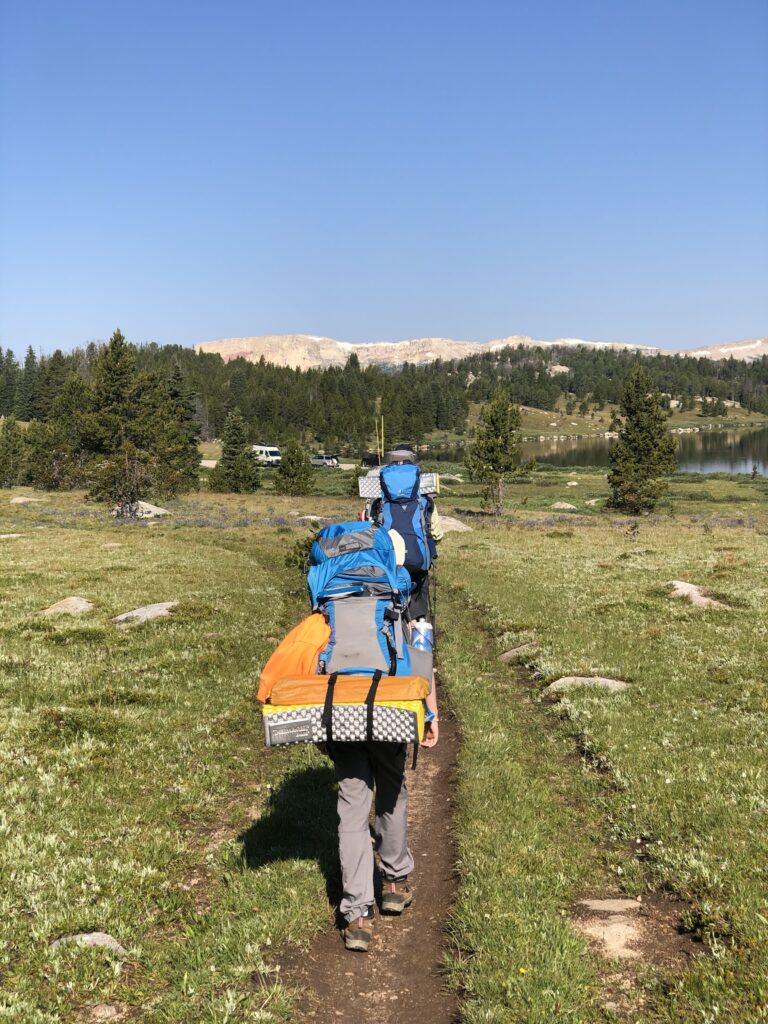
For three days, the invisible virus disappeared. High in the Beartooth Wilderness, masks and hand sanitizer became irrelevant. No one needed stickers on the ground to maintain social distance. Instead, we worried about unambiguous, profoundly visible threats. Clouds of mosquitoes taunted us every time we stopped to catch our breath. A steep, unstable scree-field threatened a medical evacuation with every step. More than once, we stumbled out in the dead of night to chase belligerent mountain goats from our campsite. Each night, we dangled our food off steep rock cliffs and went to bed with cans of bear spray next to our heads, just in case an errant grizzly thought we smelled like dinner. Then, just as the sun began to rise on our third morning in the mountains, my ten-year-old son stumbled out of our tent and vomited. When I gave him water, he vomited again.
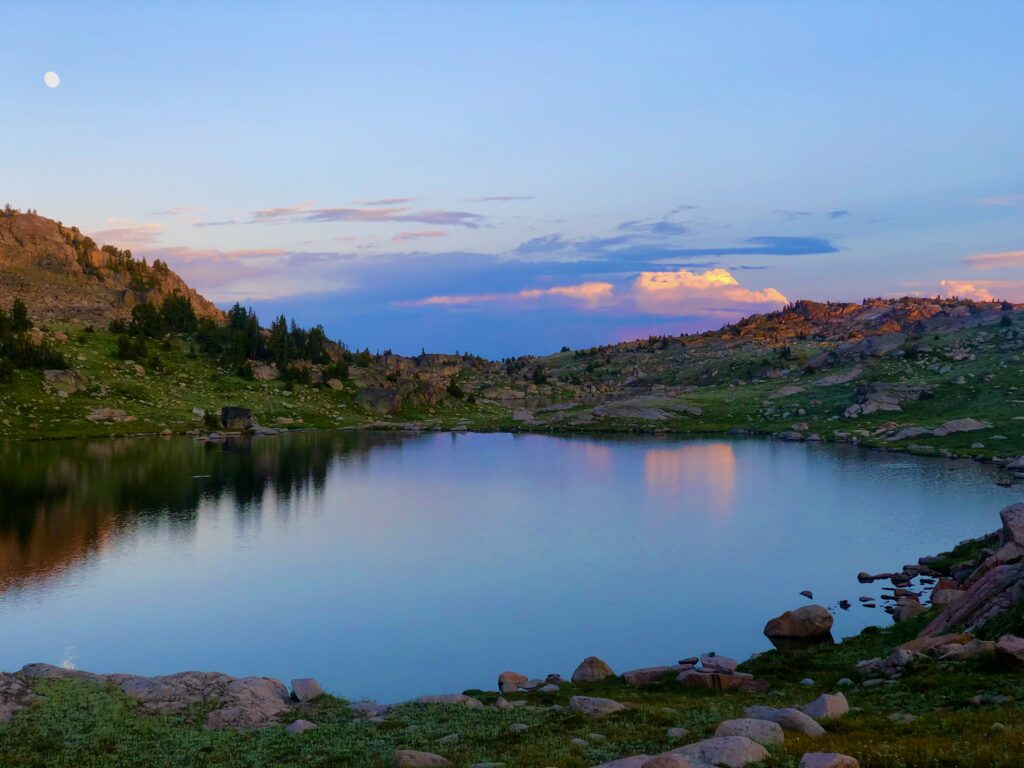
After almost 5 months hunkered down in my pandemic bunker, homeschooling my kids, tracking the explosion of research on SARS-COV-2 for my newsletter, and going nowhere (literally and, perhaps, figuratively as well), we had climbed into the mountains of Montana as part of a much needed escape from COVID-19. But there, in the stores, hotels, and restaurants of the rural west, I found myself immersed in the bizarre public health theater created by the Great Divide of American politics.
Mask as Metaphor
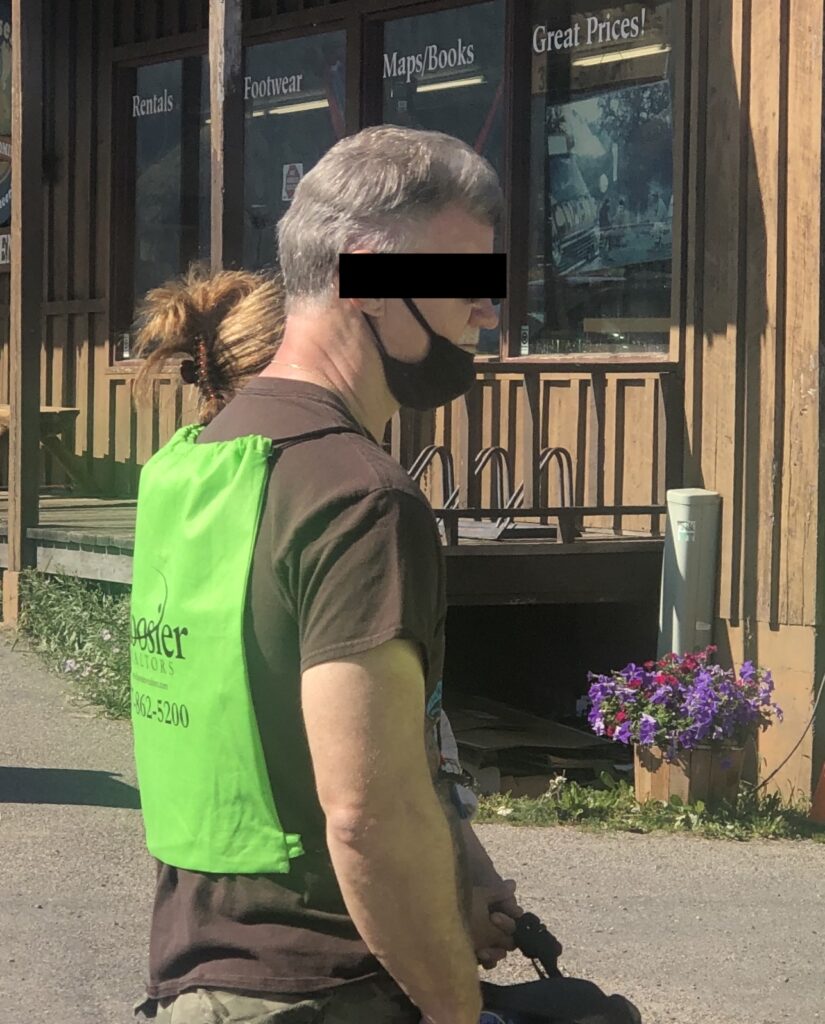
Laws requiring masks for stores and restaurants in Montana, Wyoming, and the National Parks set the stage for constant displays of passive resistance. As we stood in line to rent outdoor equipment in the Tetons, everyone wore masks. The man from Indiana, who was just ahead of us, wore his around his chin. A large sign on the registration desk of our hotel in Missoula admonished all who approached to wear a mask. The two clerks left theirs hanging around their necks like waddles of defiance. The woman running the general store in Cooke City wore no mask at all and seemed resentful that we were following the rules.
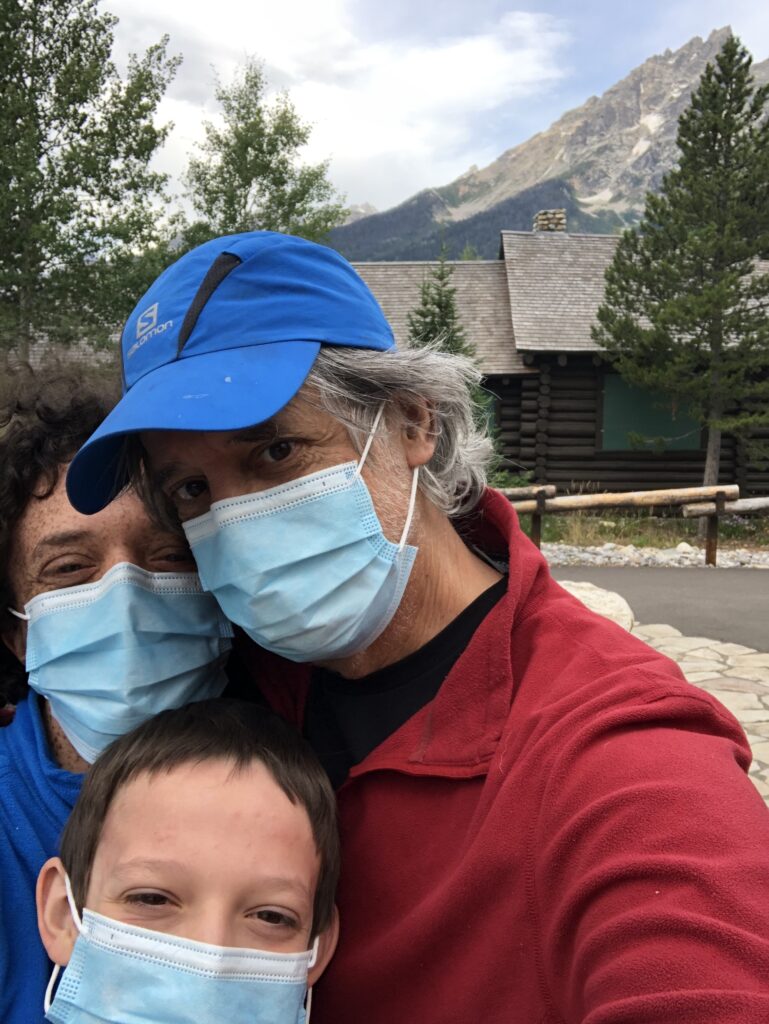
This insistence on the right to breathe unimpeded by the constraints of masks seems rooted, at least in part, in some sort of rugged individualism, which insists that any effort to tell us what risks we can and cannot take is the leading edge of creeping socialism. “If I want to take chances with this virus,” they seem to be saying, “that’s my right.”
This same message of defiance was repeated in a parade of tee shirts and bumper stickers, wherever we went. But, with a few notable exceptions, the people wearing those tee shirts were kind and courteous in their interactions with us. I believe, if they fully accepted the seriousness of the pandemic and understood that we wear masks to protect each other, they would be just as ready to do so as we were.
The Way Off the Mountain
After my son vomited the second time, he crawled back into his sleeping bag. Worried about his level of hydration, I asked him how many times he had peed in our two days of hiking. “Once,” he told me. My worry turned to grave concern.
I suspected my son was suffering from altitude sickness compounded by dehydration. Hiking at high altitude is notorious for sucking water from your body. The only way for him to hydrate himself was for him to drink and the altitude sickness was making that impossible. The only way to stop that was to descend, but we were on something of a plateau and would need to hike almost two miles before we began to lose altitude.
With no alternative, we divided up his gear between the four of us, his brother, his sister, her boyfriend, and me. Then, we propped him up with nothing in his pack but a sleeping bag and began to hike. We made slow, awkward progress with frequent breaks. I held his hand as we hiked. He seemed so small, frail, and afraid. And I had put him there. Every time we stopped, we gave him water. Every time he drank, he vomited again.
Few places in this world are more dangerous than home. Fear not, therefore, to try the mountain passes. They will kill care, save you from deadly apathy, set you free, and call forth every faculty into vigorous, enthusiastic action.
John Muir
But we had to keep going. My son let out a plaintive moan with every step. Since he couldn’t hold water down, I worried that he would soon need IV hydration. The nearest place to do that was at least an hour’s drive from the trailhead. At the rate we were moving, the trailhead was at least three hours hike. We had to go faster. Soon we were carrying all of his gear including his pack. Finally, we distributed my gear so I could carry him on my back.
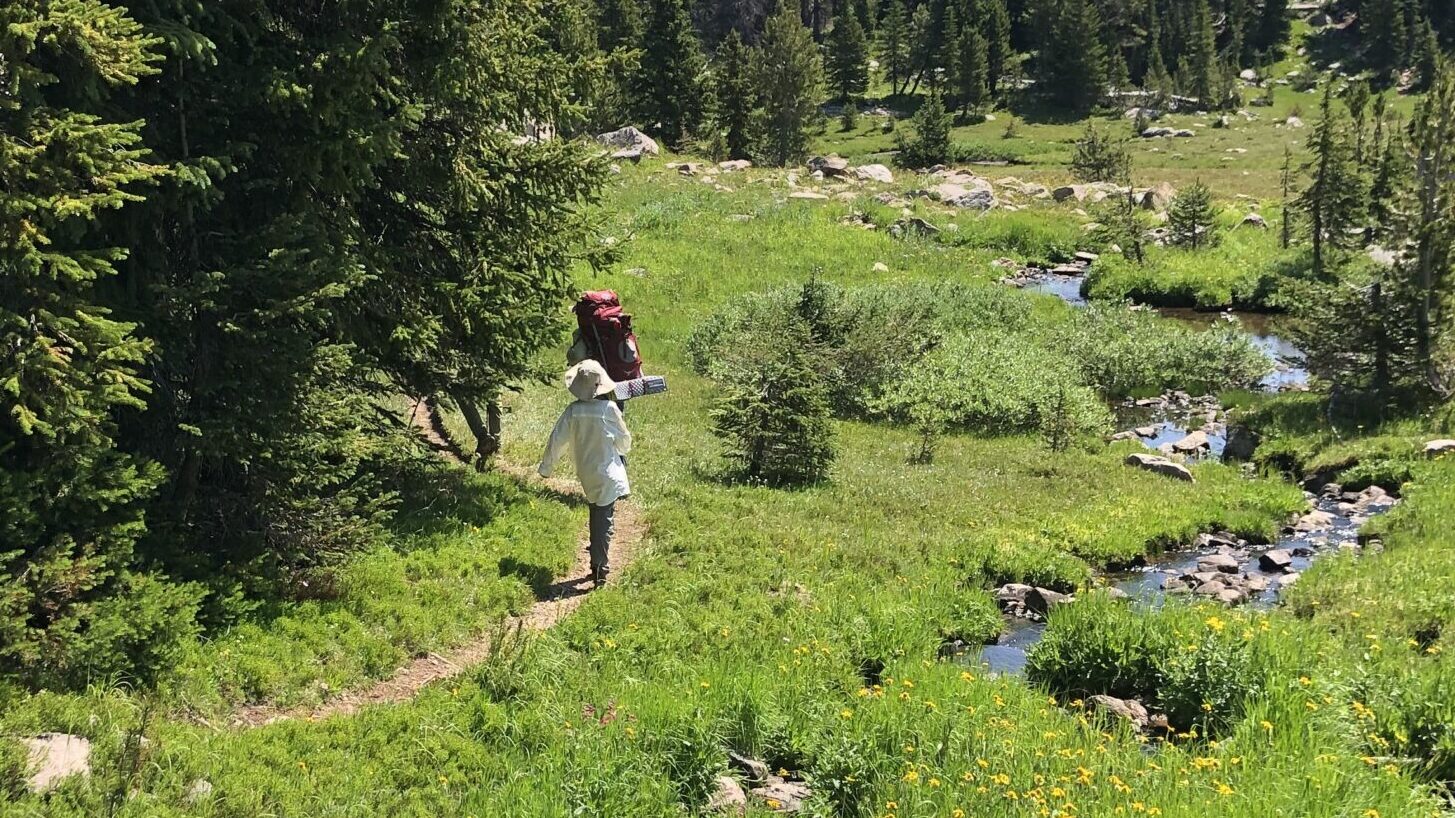
Then, we started to descend. And he began to improve. Like magic, with each hundred feet we dropped, he began to feel better. At 9,000 feet, the vomiting stopped. When he told a joke, I knew we would be OK.
As we drove off, I felt a sense of relief and gratitude. There had been only one way off the mountain. My son could not have made it with a full pack. We had to share the load.
Lessons for COVID-19
We need two things to get us out of this pandemic. First, we need a willingness to share the load. That means wearing masks, keeping distance, washing hand, or going out less, not to protect ourselves, but to protect each other. To do this, we need leadership based on self-sacrifice for the greater good.
Wearing a mask is not socialism, it’s kindness writ large. It is decency and respect for each other. Sure, we can insist that everyone carry a full pack off the mountain, but, as we leave bodies behind, we create a cruel world and the stark realization that, when we are weakened and our packs become too heavy, we will be left behind as well.
I fear that COVID-19 is the first of many mountains we will be forced to climb in the coming decades. We need to decide whether we will do so individually, leaving the weakest to fend for themselves or collectively, sharing the load to help others through difficult times.
I vote for compassion.
